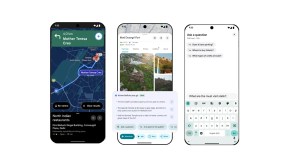As advertisements swamp cell phones, privacy worries multiply
Your cell phone is a potential gold mine for marketers: It can reveal where you are, whom you call and even what music you like.

Your cell phone is a potential gold mine for marketers: It can reveal where you are, whom you call and even what music you like. Considering the phone is usually no more than a few feet away, these are powerful clues for figuring out just the right moment to deliver the right coupon for the store just around the corner. But first marketers will have to wrest the personal profiles from mobile carriers worried that annoyed subscribers might defect to rivals.
“It’s proceed with caution,” said Jarvis Coffin, chief executive of advertising distributor Burst Media Corp. “Are consumers going to be spooked by the idea that suddenly their phone goes beep and it’s a Starbucks offer, and they are standing next to a Starbucks?” Carriers are now guarding the data zealously, but many people believe it’s only a matter of time before marketers can routinely target ads to a potential customer’s location and actions.
Imagine getting pitches for rental cars and hotels the moment you land in a city because an analysis of past calls suggests you tend to take weeklong trips there. Or if day trips to another city are your thing, you might get an offer for cab service instead. “My phone has a lot of very specific and detailed information about myself … information that isn’t always going to be resident when I’m at a number of PC browsers,” said Rob Adler, chief executive for mobile Web company go2 Media Inc.
Mobile ads today are mostly blasted at the mass audiences, with a few carriers offering limited targeting based on users’ age, gender, postal code and other characteristics. That should change. Ever since the US Federal Communications Commission ruled in 1996 that wireless carriers must help emergency 911 dispatchers identify a caller’s location, technology companies and privacy advocates alike have been speculating about making phones’ location information available to commercial services and advertisers. “It’s always been the next big thing around the corner the last 10 years, and now we really feel that it is,” said Brian Levin, chief executive for Liberty Media Corp’s Useful Networks Inc, a company that helps outside developers tap location information from cell carriers.
More and more people are using cell phones for more than calling, embracing data services like text messaging and ring tones — and devices also are improving. Advertisers, meanwhile, are starting to experiment with mobile ads. With a boom in GPS devices and location services like maps and child tracking, it’s only natural that advertisers, too, will want to take advantage of location information.
Companies are also developing ways to share profiles with marketers while stripping out sensitive information like names. The challenge will be getting consumers at the right state of mind. You might appreciate that restaurant discount when you’re hungry but not if you’ve just finished lunch. The mantra, for now, is to avoid the type of backlash that online hangout Facebook recently faced when it enlisted users as endorsers of movies and other products, initially without them necessarily realising it.
“We know this is a great opportunity for targeting, but we don’t want to blow it by overdoing it,” said Eswar Priyadarshan, chief technical officer for Quattro Wireless Inc, a mobile ad distributor.



- 01
- 02
- 03
- 04
- 05




























